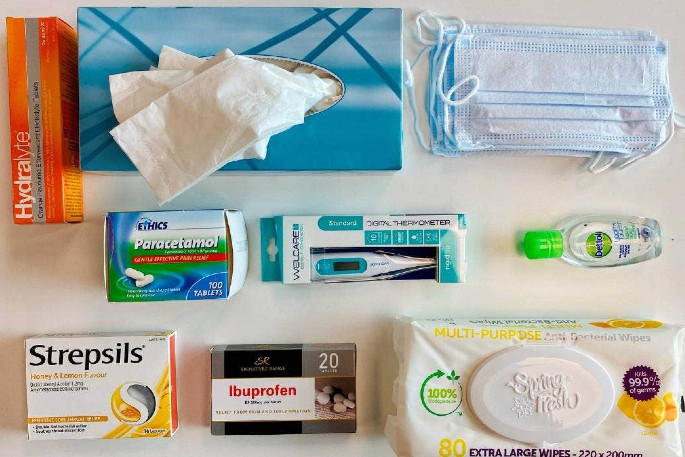The arrival of Omicron on our shores is yet to flare into a full-blown outbreak, but we should be prepared for the likelihood of contracting the super transmissible strain of Covid-19.
An at-home Covid management kit is about getting back to basics.
Provided we are at least double vaccinated and don't have any underlying conditions, the preparation that most of us can do is to have things to help us manage symptoms, minimise risk to others, and aid rest and recovery at home.
The Ministry of Health suggests having a ‘wellness kit' at home, which can include nasal sprays, lozenges, paracetamol, ibuprofen and cough mixtures, as well as any prescription medicines.
Other products to keep on hand include extra masks, gloves, tissues, hand sanitiser, rubbish bags and other cleaning products.
With Omicron, doctors are seeing less of the loss of smell that we had with Delta and symptoms such as a runny or stuffy nose, headaches and muscle aches, which can be eased with over-the-counter medicines like paracetamol and ibuprofen.
Unless you have liver disease or severe asthma, these can be taken together, and taken as per the dosage on the box.
Stock up on over the counter medications for sore throats and common cold and flu symptoms like headaches and muscle pain. Include a thermometer and a sachet of hydralyte to aid with hydration.
Having salt gargles, honey, or perhaps a local anaesthetic lozenge or spray could be useful.
Stock up on prescribed medications and fill some repeats for medications you take regularly ahead of time.
It's recommended that asthmatics review their treatment plans with their doctors because Covid may cause more severe asthma flare-ups.
If you do contract Covid and don't have the supplies you need at home, most GPs can send a script to your pharmacy. Have a friend on stand-by to pick it up and leave it on your doorstep.
Have surgical face masks and cleaning products on hand in case one member of the household falls ill and can't isolate themselves from the rest of the house.
If you're sharing a space with other people, do your very best to minimise the spread within your home.
Also stock up on soups and fluids that will help you get some calories into your body when it needs to focus on healing.



0 comments
Leave a Comment
You must be logged in to make a comment.